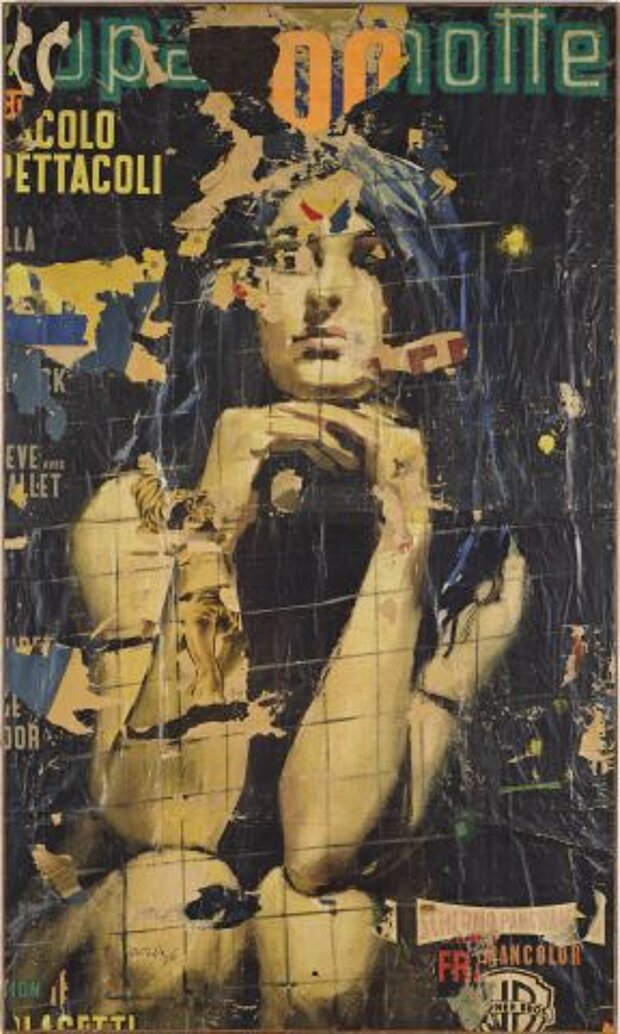
Rotella, Mimmo
Europa di Notte
1961

© mumok
| Object description | Poster fragments on canvas |
|---|---|
| Object category | sculpture |
| Dimensions |
Objektmaß:
height: 180,5 cm,
width: 108 cm,
depth: 2,2 cm
|
| Year of acquisition | 1978 |
| Inventory number | B 501/0 |
| Creditline | mumok - Museum moderner Kunst Stiftung Ludwig Wien, ehemals Sammlung Hahn, Köln |
| Rights reference | Bildrecht, Wien |
| Further information about the person | Rotella, Mimmo [GND] |
| Literature |
Cinéma brut.Eine alternative Genealogie der Filmavantgarde Nouveau Réalisme. Schwerpunkte der Sammlung museum moderner kunst.SAMMLUNG HAHN I Love Pop. Europa-Usa anni '60. Mitologie del quotidiano |
“Tearing posters from walls is the only compensation, the only means of protest against a society that displays no interest any longer in change and substantial restructuring. Finding posters and tearing them down creates unforeseeable new forms. This protest has let me to abandon easel painting.“ Mimmo Rotella first ripped posters in 1954 in Rome. Four years later art critic Pierre Restany visited him and told him about the activities of the Paris affichistes Raymond Hains, Francois Dufrêne, and Jacques Villeglé. Rotella’s technique was different from the Paris artists, as he further worked on the ripped posters in his studio and added his own compositional elements. He was nonetheless a committed member of the nouveaux réalistes, having joined the group the year it was founded in 1960. In 1962 he presented his first solo exhibition in Paris, showing a series he had commenced in 1958, entitled “Ciné Citta” and including a selection of ripped Italian cinema posters, among them “Europa di note”. It shows several overlapping layers of posters, the uppermost of which advertises Alessandro Blasetti’s 1958 film “Europa di note”. Cuts and tears permit a view of the layers beneath. Motifs from different posters thus merge to create unintended combinations. As Rotella uses figurative subjects from popular culture, his art, like that of Martial Raysse, also shows links with Pop art.
© mumok – museum moderner kunst stiftung ludwig wien